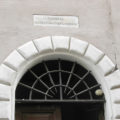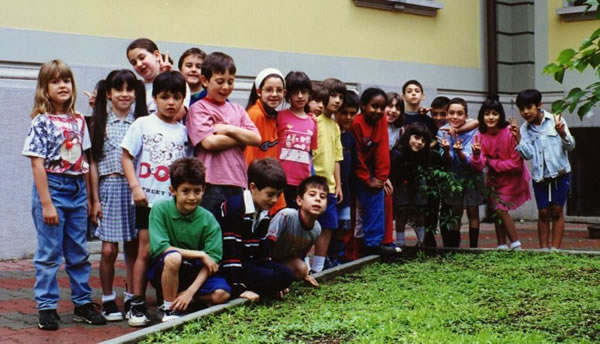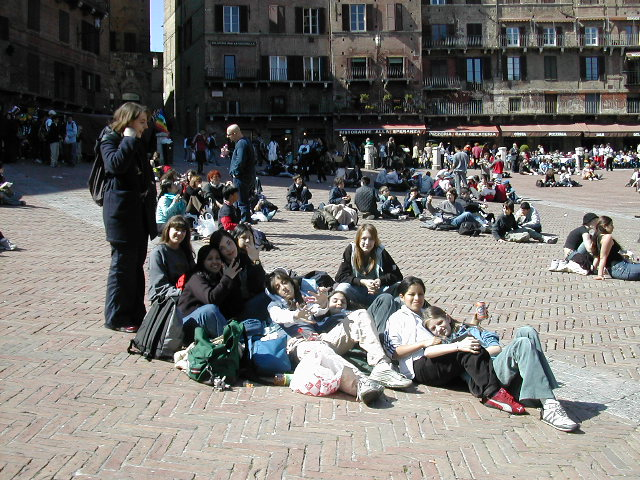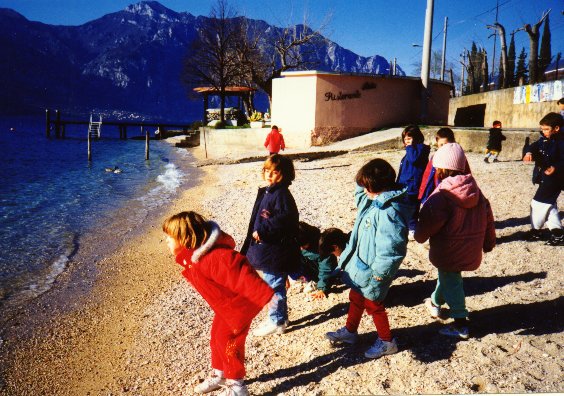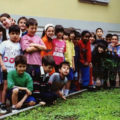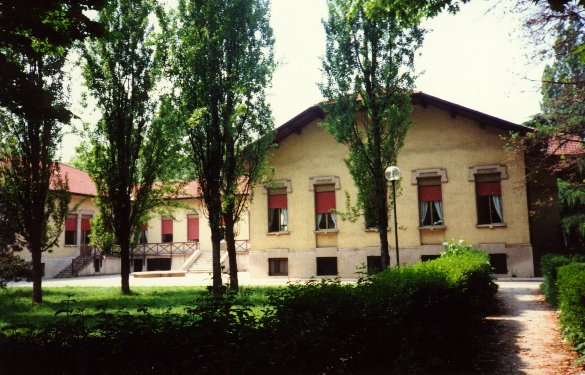Italian Middle School Exams
The Italian education system is big on exams. Ross did pass her middle school exam, with a grade of Buono (on a scale of Ottimo, Distinto, Buono, Sufficiente, Insufficiente – outstanding, distinguished, good, sufficient, insufficient). This was better than I’d expected, since most of her grades this year have been merely sufficiente. But she worked the system brilliantly.
Her results on the written tests were a mix. The test of written Italian was simply to write an essay, which Ross does well (even better when she takes a little time to concentrate on her spelling and punctuation). Math she only did half of, and probably that half badly; English was a joke for her, and French seems to have gone well. On average, a passing grade, I guess (we were not given the individual test grades).
Then she had about ten days to study for the oral. I was in a panic; I’d been told that the panel of teachers could ask almost anything that had been covered throughout the year. But her math tutor advised her to go and watch some of her friends’ orals. This she did, and also talked with some other kids. One told her he had prepared mini-essays on the specific topics he wanted to talk about, and the teachers seemed pleased to be given these before he started. Then he gave his prepared presentations, and managed to steer the exam to the topics where he felt best prepared.
While watching her friends, Ross observed that her beloved music teacher was slumped in his chair, feeling left out. After all the major subjects had been covered, he would forlornly ask a question or two, and be met with blank looks. “Did you even bring your music notebook?” he would ask in desperation. No one had.
So Ross sat down and wrote an essay about jazz, specifically on swing music during WWII (inspired by Jazz : A Film By Ken Burns – the accompanying booklet came in very handy). She chose her topics in other subjects to match: WWII for history, the atomic bomb for science. She also took in advice from her (very supportive) art teacher: “Talk about your artwork, and for god’s sake, don’t burst into tears! I expect better from you.” Not that Ross was likely to do so, but several of her classmates had sobbed through their orals.
When Ross’ exam began, she handed out her essays, then the teachers asked her what she wanted to talk about first. “I’d like to talk about jazz,” she said. The French teacher elbowed the music teacher: “Hey! It’s your subject!” He sat up and got very enthusiastic, and they had a long conversation about jazz. Then Ross spoke about the other subjects, except the atomic bomb – many kids had already talked about this, and the math/science teacher was bored of hearing it. So she picked a topic that Ross hadn’t studied and didn’t remember much about. Oh, well.
Ross had put her art pieces into a presentation binder, and spoke about each one, explaining what famous painting it was inspired by (or copied from), with some biography of the original artist. She came home quite confident that she had passed; we all heaved a sigh of relief.
Part of the exam ritual is to go and see the grades as soon as they are posted outside the school, for all to see. Ross and I were pleasantly surprised by the buono, which put her at or above the average for the class. Her Italian teacher came by on her way to a meeting, and we thanked her for the year’s work. I said I was pleased with the exam result. “There was some negotiation over that,” she replied, with a significant lift of the eyebrow. Ah, yes, the math teacher, who didn’t like Ross’ attitude or lack of math ability (“How is it possible when your father’s a math professor…?” Poor Ross has been hearing that all her life.)
I just smiled; I had a pretty good idea who had negotiated vigorously on Ross’ behalf. Half an hour later, I was standing in line to pick up Ross’ exit papers, and the music teacher ran by, late for the staff meeting. He saw me, and gave me a huge grin.
As I also mentioned earlier, cheating is widespread in Italian schools. I was writing that piece while Ross was doing her English written exam, which for her was simple and soon over.
She came home and said casually: “I’ve found a way to earn some money: I wrote Martino’s English test for him.” We were, of course, aghast. He hadn’t actually paid her, had simply asked her to do it – and, much to my disgust, she did.
After half an hour of hearing from two very angry parents a host of reasons as to why this wasn’t a good thing, she probably won’t be doing it again… or at least next time she won’t tell us!
In response to that original article, an Italian friend wrote me that, during an exam in electronics technical school, his whole class cheated together, with the assistance of their teacher. This was because one of the exam questions was on something so obscure and bizarre that you would never do it in real life, and it required the cooperation of the whole group searching through the library to find the answer. I guess the question succeeded brilliantly as a test of teamwork.
next: high school

